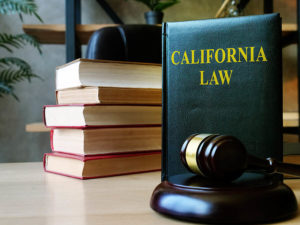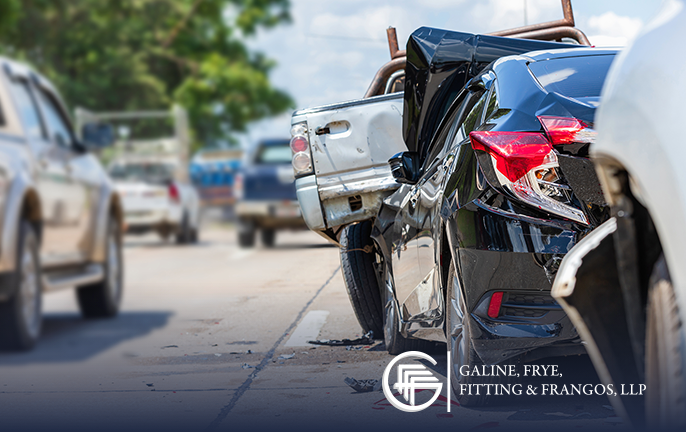Your Inability to Remember Your Fall Accident is Not a ‘Deal-Breaker’ for a Successful Premises Liability Lawsuit in California
In a perfect world, your slip-and-fall accident would have a plethora of eyewitnesses, all of whom saw the hazard, saw that there was no warning about the problem, and at least some of whom had personal knowledge that the property owner knew about the issue and knew that it had been there quite a while. The real world is not perfect, though.
Even if your case utterly lacks eyewitness accounts, don't be intimidated into giving up on your case. Instead, make sure to talk to an experienced
San Mateo premises liability lawyer who may be able to shed light on options you didn't know you had.
A
slip-and-fall case from Southern California is a good example of success even in the absence of anyone knowing how the accident happened.
It all began when L.K. traveled to California to visit her sister who lived in a rented house in Hermosa Beach. The home was a one-bathroom property and the bathroom contained a short stairway that led from the doorway to "a platform with a commode."
The bathroom's light stopped working while L.K. was visiting her sister in 2014. During that time, she fell when trying to navigate the bathroom stairs in the darkness,
suffering significant injuries as a result.
The woman sued the landlord for her injuries under the
legal theory of premises liability, but she had a problem. No one knew why she fell. Her sister didn't see it happen and she didn't remember anything. L.K.'s memory went directly from her being on the steps one moment to waking up on the ground in pain the next.
Those facts were integral to the landlord's motion for summary judgment that sought to get the woman's lawsuit thrown out. The landlord asserted that with no evidence of causation (a/k/a that a hazardous defect in the property caused the accident,) L.K. couldn't make out a viable premises liability claim, because proof of causation is an essential element.
Remembering the Specifics of Your Accident is Not a Requirement

The trial court agreed with the landlord but the appeals court ruled that this was not correct. The appeals court explicitly stated that a "slip-and-fall plaintiff need not remember her fall to recover damages provided the evidence gives rise to a reasonable and probable inference that the defendant’s negligence was a substantial contributing factor."
What does this kind of evidence look like? A pair of
previous slip-and-fall accident cases are helpful. In both of those cases, the appeals court and the California Supreme Court reached similar decisions in favor of injured plaintiffs. Even though both of the injured plaintiffs in those cases had no memory of the specifics regarding their fall, the courts declared that "the circumstantial evidence led to reasonable and probable inferences that each fell from a height due to the absence of adequate barriers that would have restrained them."
In L.K.'s case, she had circumstantial evidence that she was walking down the stairs and then was subsequently lying on the floor in pain. This was enough that a reasonable jury could find that she
slipped and fell on the steps due to insufficient restraints like handrails. As a result, she was entitled to take her case to trial.
If you're injured by a hazardous condition while you're on someone else's property, your accident may come with lots of eyewitnesses or none at all. Both of these scenarios are ones where, with the right additional circumstantial evidence, you can achieve a successful result.
Whatever challenges your case presents, look to
skilled San Mateo premises liability attorneys at the Law Offices of Galine, Frye, Fitting & Frangos to know how to meet them and get you the best possible outcome.
Our helpful attorneys are here and ready to discuss how we can help you. To set up a free consultation, contact us at 650-345-8484 or through our website.
 The trial court agreed with the landlord but the appeals court ruled that this was not correct. The appeals court explicitly stated that a "slip-and-fall plaintiff need not remember her fall to recover damages provided the evidence gives rise to a reasonable and probable inference that the defendant’s negligence was a substantial contributing factor."
What does this kind of evidence look like? A pair of previous slip-and-fall accident cases are helpful. In both of those cases, the appeals court and the California Supreme Court reached similar decisions in favor of injured plaintiffs. Even though both of the injured plaintiffs in those cases had no memory of the specifics regarding their fall, the courts declared that "the circumstantial evidence led to reasonable and probable inferences that each fell from a height due to the absence of adequate barriers that would have restrained them."
In L.K.'s case, she had circumstantial evidence that she was walking down the stairs and then was subsequently lying on the floor in pain. This was enough that a reasonable jury could find that she slipped and fell on the steps due to insufficient restraints like handrails. As a result, she was entitled to take her case to trial.
If you're injured by a hazardous condition while you're on someone else's property, your accident may come with lots of eyewitnesses or none at all. Both of these scenarios are ones where, with the right additional circumstantial evidence, you can achieve a successful result.
Whatever challenges your case presents, look to skilled San Mateo premises liability attorneys at the Law Offices of Galine, Frye, Fitting & Frangos to know how to meet them and get you the best possible outcome.
Our helpful attorneys are here and ready to discuss how we can help you. To set up a free consultation, contact us at 650-345-8484 or through our website.
The trial court agreed with the landlord but the appeals court ruled that this was not correct. The appeals court explicitly stated that a "slip-and-fall plaintiff need not remember her fall to recover damages provided the evidence gives rise to a reasonable and probable inference that the defendant’s negligence was a substantial contributing factor."
What does this kind of evidence look like? A pair of previous slip-and-fall accident cases are helpful. In both of those cases, the appeals court and the California Supreme Court reached similar decisions in favor of injured plaintiffs. Even though both of the injured plaintiffs in those cases had no memory of the specifics regarding their fall, the courts declared that "the circumstantial evidence led to reasonable and probable inferences that each fell from a height due to the absence of adequate barriers that would have restrained them."
In L.K.'s case, she had circumstantial evidence that she was walking down the stairs and then was subsequently lying on the floor in pain. This was enough that a reasonable jury could find that she slipped and fell on the steps due to insufficient restraints like handrails. As a result, she was entitled to take her case to trial.
If you're injured by a hazardous condition while you're on someone else's property, your accident may come with lots of eyewitnesses or none at all. Both of these scenarios are ones where, with the right additional circumstantial evidence, you can achieve a successful result.
Whatever challenges your case presents, look to skilled San Mateo premises liability attorneys at the Law Offices of Galine, Frye, Fitting & Frangos to know how to meet them and get you the best possible outcome.
Our helpful attorneys are here and ready to discuss how we can help you. To set up a free consultation, contact us at 650-345-8484 or through our website. 